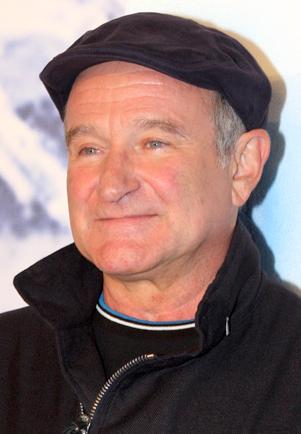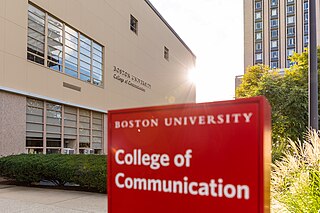Related Research Articles

Robin McLaurin Williams was an American actor and comedian. Known for his improvisational skills and the wide variety of characters he created on the spur of the moment and portrayed on film, in dramas and comedies alike, Williams is regarded as one of the greatest comedians of all time. He received numerous accolades including an Academy Award, two Primetime Emmy Awards, six Golden Globe Awards, five Grammy Awards, and two Screen Actors Guild Awards. Williams was awarded the Cecil B. DeMille Award in 2005.

Michael Andrew Fox, known professionally as Michael J. Fox, is a Canadian and American activist and retired actor. Beginning his career as a child actor in the 1970s, he rose to prominence portraying Alex P. Keaton on the NBC sitcom Family Ties (1982–1989) and Marty McFly in the Back to the Future film trilogy (1985–1990). Fox went on to star in films such as Teen Wolf (1985), The Secret of My Success (1987), Casualties of War (1989), Doc Hollywood (1991), and The Frighteners (1996). He returned to television on the ABC sitcom Spin City in the lead role of Mike Flaherty (1996–2000).
Lewy body dementia (LBD) is an umbrella term for two similar and common subtypes of dementia: dementia with Lewy bodies (DLB) and Parkinson's disease dementia (PDD). Both are characterized by changes in thinking, movement, behavior, and mood. The two conditions have similar features and may have similar causes, and are believed to belong on a spectrum of Lewy body disease that includes Parkinson's disease. As of 2014, they were more often misdiagnosed than any other common dementia.

Spin City is an American sitcom television series that aired from September 17, 1996, to April 30, 2002, on ABC. Created by Gary David Goldberg and Bill Lawrence, the show is set in a fictionalized version of the New York City mayor's office, and originally starred Michael J. Fox as Mike Flaherty, the Deputy Mayor of New York. Fox departed in 2000 at the conclusion of Season 4 due to symptoms of Parkinson's disease, and Charlie Sheen became the new lead as Charlie Crawford for the final two seasons. The series was cancelled after six seasons in May 2002.

Paul Greengard was an American neuroscientist best known for his work on the molecular and cellular function of neurons. In 2000, Greengard, Arvid Carlsson and Eric Kandel were awarded the Nobel Prize for Physiology or Medicine for their discoveries concerning signal transduction in the nervous system. He was Vincent Astor Professor at Rockefeller University, and served on the Scientific Advisory Board of the Cure Alzheimer's Fund, as well as the Scientific Council of the Brain & Behavior Research Foundation. He was married to artist Ursula von Rydingsvard.

Apomorphine, sold under the brand name Apokyn among others, is a type of aporphine having activity as a non-selective dopamine agonist which activates both D2-like and, to a much lesser extent, D1-like receptors. It also acts as an antagonist of 5-HT2 and α-adrenergic receptors with high affinity. The compound is historically a morphine decomposition product made by boiling morphine with concentrated acid, hence the -morphine suffix. Contrary to its name, apomorphine does not actually contain morphine or its skeleton, nor does it bind to opioid receptors. The apo- prefix relates to it being a morphine derivative ("[comes] from morphine").
Brent Carver was a Canadian actor best known internationally for performances in both London's West End and on Broadway in Kiss of the Spider Woman as Molina, for which he won the Tony Award for Best Leading Actor in a Musical in 1993 and was nominated for an Olivier Award. A subsequent Broadway appearance in 1999 in Parade as Leo Frank, led to a second nomination for the Tony Award for Best Leading Actor in a Musical.

The Arts Club Theatre Company is a Canadian professional theatre company in Vancouver, British Columbia, founded in 1958. It is the largest urban not-for-profit theatre company in the country and the largest in Western Canada, with productions taking place at the 650-seat Stanley Industrial Alliance Stage, the 440-seat Granville Island Stage, the 250-seat Newmont Stage at the BMO Theatre Centre, and on tour around the province. The company celebrated its 50th season in 2014 and produced its 600th production in 2017.
J. William Langston is the founder and chief scientific officer, movement disorder specialist, and chief executive officer of the Parkinson's Institute and Clinical Center in Sunnyvale, California, the founding member of the Scientific Advisory Board for the Michael J. Fox Foundation and the Co-Editor-in-Chief of the Journal of Parkinson's Disease. He is a graduate of the University of Missouri School of Medicine. Langston was formerly a faculty member at Stanford University and Chairman of Neurology at Santa Clara Valley Medical Center in San Jose, California. Langston has authored or co-authored some 360 peer-reviewed articles in the field of neurology, most of which are on Parkinson's disease and related disorders. Langston gained national and international recognition in 1982 for the discovery of the link between a "synthetic heroin" contaminant (MPTP) and parkinsonism.

Sir Roy Yorke Calne was a British surgeon and pioneer in organ transplantation. He was part of the team that performed the first liver transplantation operation in Europe in 1968, the world's first liver, heart and lung transplantation in 1987, the first intestinal transplant in the UK in 1992 and the first successful combined stomach, intestine, pancreas, liver and kidney cluster transplantation in 1994.

Don Heaton, also known as Don Leo Jonathan, was an American-Canadian professional wrestler.
Don S. Williams was a Vancouver-based Canadian producer, director, actor, choreographer, and writer.

Boston University College of Communication (COM) is the communication school of Boston University (BU), a private research university in Boston, Massachusetts. Founded in 1947, it was the first university in the United States to offer a degree in public relations (PR), and the program sets the standard for PR paths across the country. It houses the University's undergraduate and graduate programs in advertising, film and television, journalism, media science, and public relations.
"Time After Time" is the first episode of the third season of the HBO original series The Wire. The episode was written by David Simon from a story by David Simon & Ed Burns and was directed by Ed Bianchi. It originally aired on September 19, 2004.

Patrick Moody Williams was an American composer, arranger, and conductor who worked in many genres of music, and in film and television.
The Tasmanian Football Hall of Fame was established to help recognise outstanding services and overall contribution made to the sport of Australian rules football in Tasmania. Any participant of the sport, including players, umpires, media personalities and coaches, may be inducted. A physical hall was established in 2005 after the Tasmanian Community Fund provided a $50,000 grant to assist AFL Tasmania and the Launceston City Council with establishment of a permanent facility at York Park. The decision to locate the Hall of Fame at the ground was because the site had recently been redeveloped and was positioned as the "true home of Tasmanian football". AFL Tasmania initiated the Hall of Fame nomination process, with a number of clubs, players and grounds nominated and accepted into the Hall of Fame since 2005. The public Hall of Fame opened to the public on Saturday 21 February 2009.
The research in Parkinson's disease refers to any study intended to help answer questions about etiology, diagnostic approaches or new treatments of Parkinson's disease (PD) by studying their effects on human subjects. Clinical trials are designed and conducted by scientists and medical experts, who invite participants to undergo testing new vaccines, therapies, or treatments.

Parkinsonian gait is the type of gait exhibited by patients with Parkinson's disease (PD). It is often described by people with Parkinson's as feeling like being stuck in place, when initiating a step or turning, and can increase the risk of falling. This disorder is caused by a deficiency of dopamine in the basal ganglia circuit leading to motor deficits. Gait is one of the most affected motor characteristics of this disorder although symptoms of Parkinson's disease are varied.

Alim Louis Benabid is a French-Algerian emeritus professor, neurosurgeon and member of the French Academy of Sciences, who has had a global impact in the development of deep brain stimulation (DBS) for Parkinson's disease and other movement disorders. He became emeritus professor of biophysics at the Joseph Fourier University in Grenoble in September 2007, and chairman of the board of the Edmond J. Safra Biomedical Research Center in 2009 at Clinatec, a multidisciplinary institute he co-founded in Grenoble that applies nanotechnologies to neurosciences.
References
- ↑ Atkins, Lucy (April 4, 2002). "Can you catch Parkinson's?". The Guardian . Retrieved January 23, 2011.
- 1 2 Rocca, Liz (March 27, 2002). "Michael J. Fox part of B.C. Parkinson's 'cluster'". Seattle Post-Intelligencer . Retrieved January 23, 2011.
- ↑ "Leo and Me (1978) - News". Internet Movie Database . March 27, 2002. Retrieved January 23, 2011.
- ↑ Stern, Howard (September 25, 2013). The Howard Stern Show (satellite radio). Sirius XM Radio.
Believe it or not, from a scientific point of view, that's not significant.